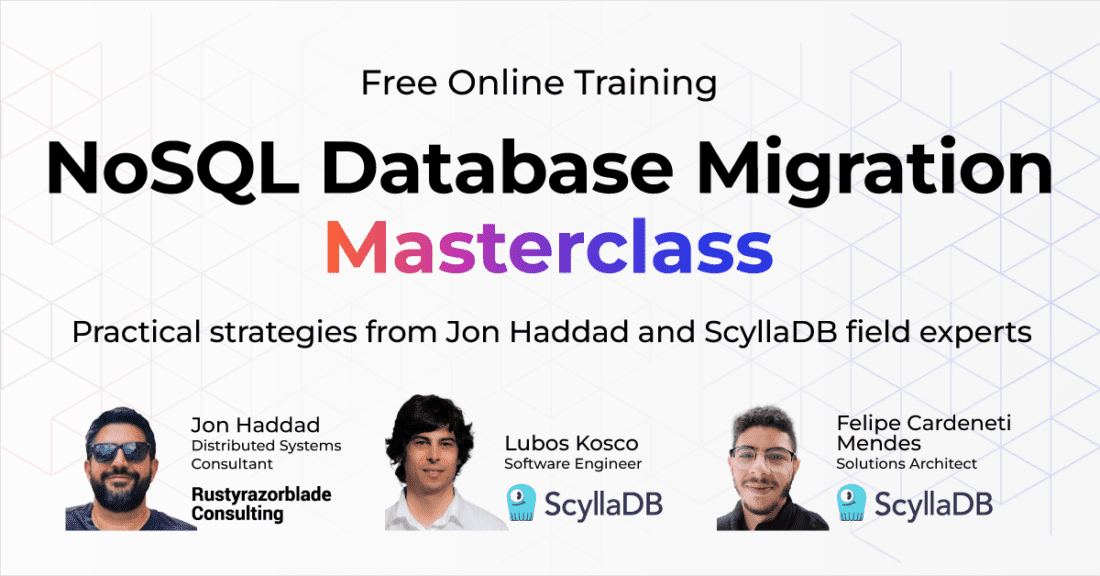Close-to-the-metal architecture handles millions of OPS with predictable single-digit millisecond latencies.
Learn More
NoSQL Masterclasses: Advance Your NoSQL Knowledge
Looking for extensive training on data modeling, database migration, and high performance for NoSQL Databases? Our experts offer 3-hour masterclasses that assists practitioners wanting to migrate from SQL to NoSQL or advance their understanding of NoSQL data modeling. These free, self-paced courses cover techniques and best practices on core NoSQL concepts .
